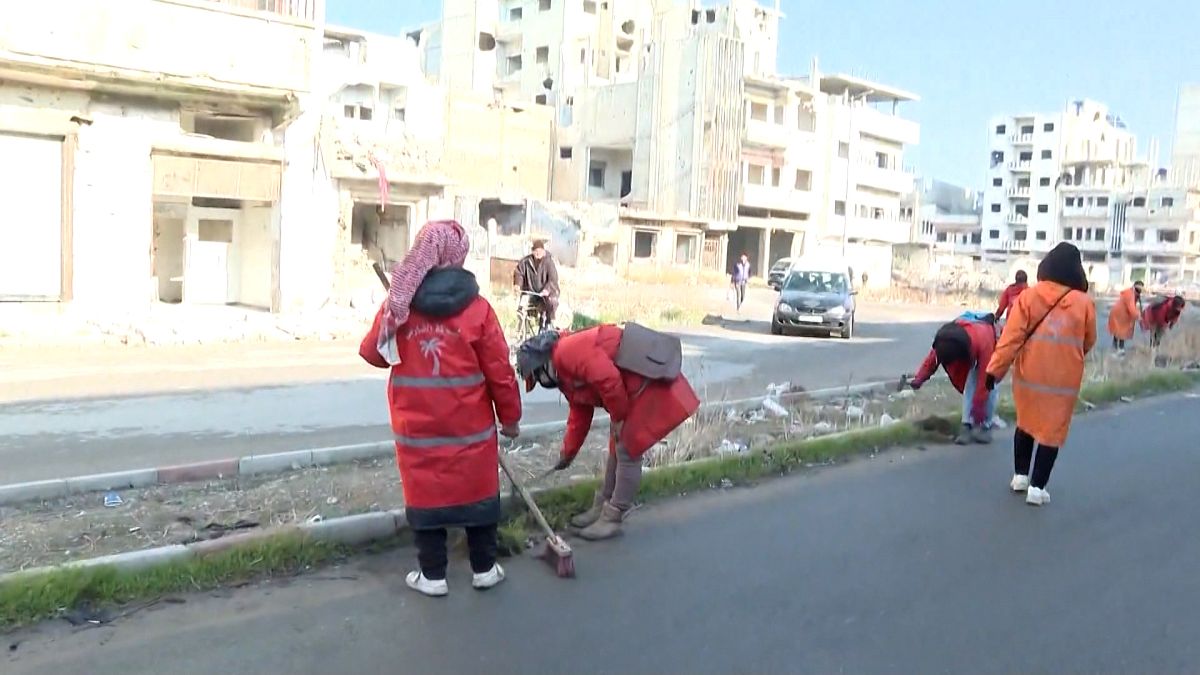The Los Angeles area is reeling from one of the most catastrophic firestorms in recent memory, leaving five people dead, over 2,000 structures damaged or destroyed, and countless lives forever changed. The Eaton, Palisades, and Sunset fires have unleashed devastation across Los Angeles County, prompting mass evacuations, straining emergency resources, and leaving a charred landscape in their wake. With red flag warnings still in effect and the fires 0% contained, officials warn that the crisis is far from over.
Lives Lost Amid the Flames
Five bodies were discovered in three separate structures in Altadena, where the Eaton fire erupted with ferocious intensity on Tuesday night. The victims had little time to escape as the fire consumed their homes, pushed by wind gusts of up to 99 mph. The Los Angeles County Fire Department has called in K-9 units trained in human-remains detection to ensure no other lives were lost in the blaze.
“It’s a tragic loss,” said L.A. County Fire Chief Anthony Marrone. “We are doing everything we can to help those affected, but the scale of this disaster is overwhelming.”
An Unprecedented Inferno
In total, more than 15,800 acres have burned in the Pacific Palisades alone, where multimillion-dollar homes along Pacific Coast Highway were reduced to ash. Another 10,600 acres have burned in the Eaton fire near Altadena and Pasadena. Meanwhile, the Sunset fire in the Hollywood Hills ignited Wednesday evening, forcing evacuations in the Runyon Canyon area.
“What we saw here in the last 24 hours is unprecedented,” said LAPD Chief Jim McDonnell. “I’ve never seen anything like this.”
Strained Resources, Desperate Measures
Firefighting efforts have been hampered by extreme winds, bone-dry brush, and an overburdened emergency response system. L.A. County firefighters, along with reinforcements from across California, Arizona, and Oregon, are battling multiple blazes with limited resources. In some areas, firefighters were forced to make agonizing decisions, bypassing some homes to save others as residents watched in despair.
In Pacific Palisades, firefighters encountered dry hydrants due to the overwhelming demand on the water system. Meanwhile, gusts nearing 100 mph pushed flames into the Santa Monica Mountains, creating a nearly impossible situation for ground crews.
“We don’t have enough fire personnel in L.A. County between all the departments to handle this,” admitted Marrone. “It’s stretching our capacity to the absolute limit.”
A Community Under Siege
Evacuation orders and warnings have displaced 130,000 residents across Los Angeles County. In Altadena, homeowners were left to defend their properties with garden hoses as fire engines sped past to more urgent hotspots. In Pacific Palisades, the flames engulfed entire stretches of Pacific Coast Highway, leaving residents unsure if they would have homes to return to.
Bill Stange, a longtime Palisades resident, fled his home with just a few belongings. By morning, reports suggested his entire hillside neighborhood was gone. His home, rebuilt after a 1993 fire, had been in his family for decades.
“I don’t think the fire department is ready for a thing like this,” Stange said. “It’s too big.”
Federal and State Assistance
President Biden and California Governor Gavin Newsom have pledged every available resource to combat the fires. National Guard units and Navy helicopters equipped with water buckets are en route to assist the overwhelmed crews. During a briefing, Biden described the situation as “astounding” and promised unwavering federal support.
“We’re prepared to do anything and everything for as long as it takes to contain these fires,” Biden said.
The Role of Weather and Climate
The firestorm has been fueled by an unprecedented combination of extreme weather and environmental conditions. With Los Angeles receiving just 0.16 inches of rain since October, vegetation has been transformed into tinder. Paired with the fierce Santa Ana winds, the result is what meteorologists have called a “catastrophic situation.”
“These winds surpass the 2011 windstorm in magnitude, coverage, and destruction,” said Ariel Cohen, meteorologist for the National Weather Service in Oxnard. “This is a once-in-a-generation kind of windstorm, accompanied by a complete apocalyptic scene.”
A Call for Vigilance
With the fires spreading unpredictably, officials warn that no area is truly safe. LAPD Chief McDonnell urged residents to remain alert and ready to evacuate at a moment’s notice.
“These are unprecedented conditions,” McDonnell said. “None of us know where the next fire will ignite.”
The Human Toll
Amid the destruction, countless stories of loss and resilience are emerging. In Pacific Palisades, a veterinarian took in 39 pets displaced by the fire, highlighting the profound impact on both humans and animals. For families like the Stanges, rebuilding will be an uphill battle, complicated by rising construction costs and dwindling resources.
“This community is strong, but we’ve never faced anything like this,” said one Malibu resident. “We’ll need every bit of help we can get.”
The Road Ahead
As firefighters battle the flames, attention is turning to the long-term implications of this disaster. The strain on emergency services, the frequency of red flag warnings, and the impact of climate change on fire behavior are pressing concerns. For now, the focus remains on saving lives and protecting what little remains.
“We are absolutely not out of danger yet,” said Los Angeles Fire Chief Kristin Crowley. “But we will fight this with everything we have.”
This tragic firestorm serves as a sobering reminder of the power of nature and the resilience of those who face it. As Los Angeles begins the arduous journey toward recovery, the scars left by this unprecedented disaster will remain etched in the region’s history.

 By The European Times | Created at 2025-01-09 11:25:03 | Updated at 2025-01-14 23:09:24
5 days ago
By The European Times | Created at 2025-01-09 11:25:03 | Updated at 2025-01-14 23:09:24
5 days ago








